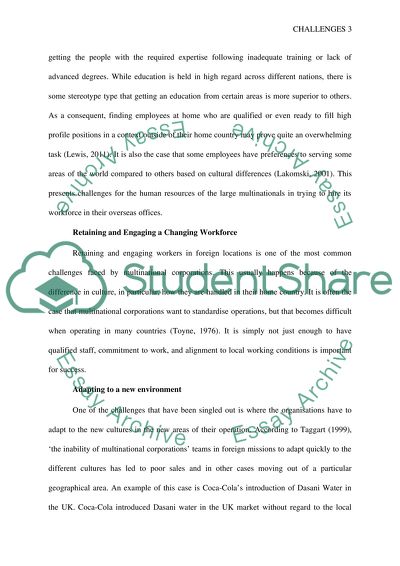Cite this document
(“What cultural challenges do multinational corporations face with Essay - 2”, n.d.)
What cultural challenges do multinational corporations face with Essay - 2. Retrieved from https://studentshare.org/macro-microeconomics/1681204-what-cultural-challenges-do-multinational-corporations-face-with-people-management-in-some-overseas-locations-critically-discuss-using-illustrations-to-demonstrate-your-argument
What cultural challenges do multinational corporations face with Essay - 2. Retrieved from https://studentshare.org/macro-microeconomics/1681204-what-cultural-challenges-do-multinational-corporations-face-with-people-management-in-some-overseas-locations-critically-discuss-using-illustrations-to-demonstrate-your-argument
(What Cultural Challenges Do Multinational Corporations Face With Essay - 2)
What Cultural Challenges Do Multinational Corporations Face With Essay - 2. https://studentshare.org/macro-microeconomics/1681204-what-cultural-challenges-do-multinational-corporations-face-with-people-management-in-some-overseas-locations-critically-discuss-using-illustrations-to-demonstrate-your-argument.
What Cultural Challenges Do Multinational Corporations Face With Essay - 2. https://studentshare.org/macro-microeconomics/1681204-what-cultural-challenges-do-multinational-corporations-face-with-people-management-in-some-overseas-locations-critically-discuss-using-illustrations-to-demonstrate-your-argument.
“What Cultural Challenges Do Multinational Corporations Face With Essay - 2”, n.d. https://studentshare.org/macro-microeconomics/1681204-what-cultural-challenges-do-multinational-corporations-face-with-people-management-in-some-overseas-locations-critically-discuss-using-illustrations-to-demonstrate-your-argument.


